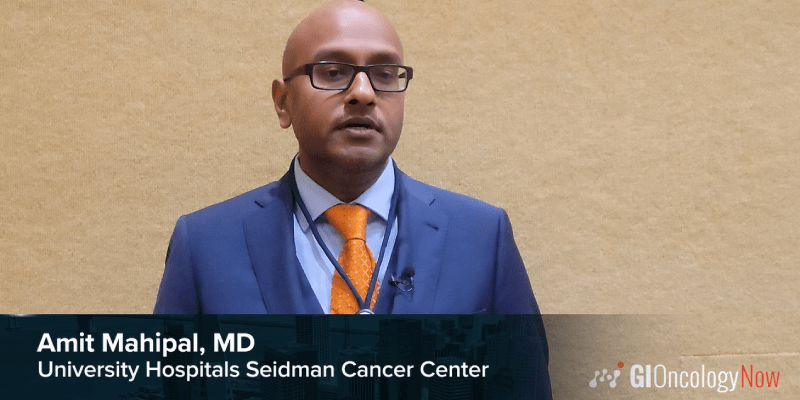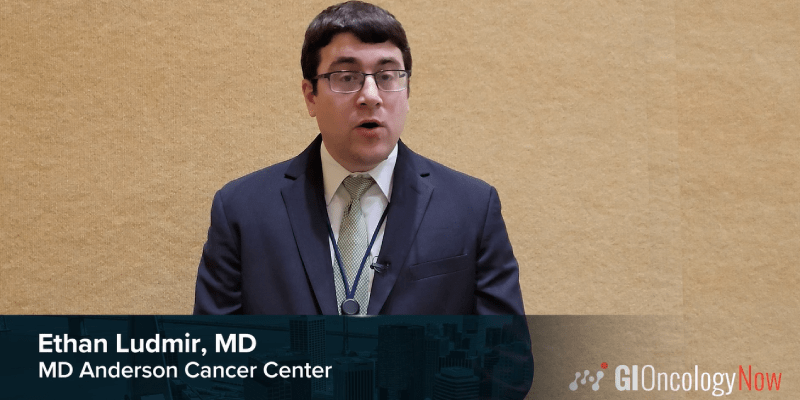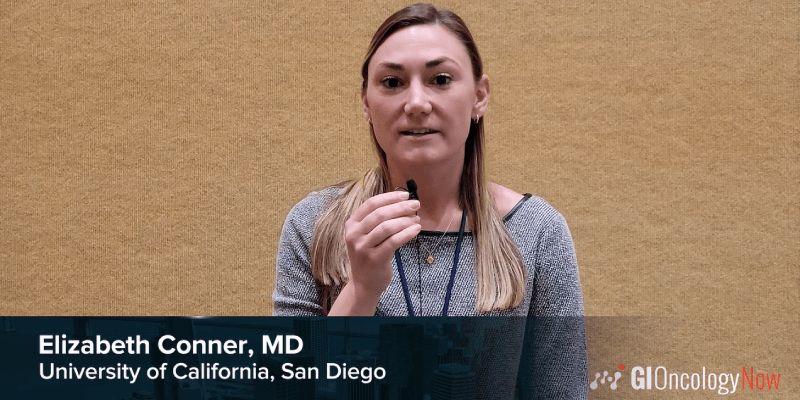
The phase 3 KEYNOTE-585 study analyzed neoadjuvant/adjuvant pembrolizumab or placebo in combination with chemotherapy followed by adjuvant pembrolizumab versus placebo for untreated, locally advanced, resectable gastric or gastroesophageal junction (G/GEJ) cancer.
A second analysis of the study examined the safety and efficacy of a separate cohort in the trial that investigated the effects of pembrolizumab in combination with fluorouracil, leucovorin, oxaliplatin, and docetaxel (FLOT).
A new look at KEYNOTE-585 presented at the 2024 American Society of Clinical Oncology Gastrointestinal Cancers Symposium offered updated insights on the safety and efficacy results of the study’s FLOT cohort at the third interim analysis.
The FLOT cohort comprised 203 patients with untreated, locally advanced, resectable G/GEJ cancer who were randomized 1:1 to receive either neoadjuvant pembrolizumab 200 mg intravenously every 3 weeks (pembrolizumab group) or placebo every 3 weeks (placebo group) for 3 cycles combined with FLOT administered every 2 weeks for 4 cycles.
After surgery, patients were administered adjuvant pembrolizumab or placebo every 3 weeks for 3 cycles combined with FLOT every 2 weeks for 4 cycles, then adjuvant pembrolizumab or placebo every 3 weeks for 11 cycles.
The pembrolizumab group comprised 100 patients, while 103 patients were placed in the placebo group. Among the total number of patients in the cohort, 12 (6%) had cT1-T2 disease, 161 (79%) had cT3, and 9 (4%) had cT4. N+ disease was noted in 140 (69%) patients, and 79 (39%) had adenocarcinoma at baseline.
End points included safety, pathological complete response (pCR) rate based on a blinded independent central review, event-free survival (EFS) based on Response Evaluation Criteria in Solid Tumors v1.1 by investigator, and overall survival (OS). The data cutoff at the third interim analysis was February 9, 2023.
The median follow-up was 31.6 months in the pembrolizumab group and 31.1 months in the placebo group at IA3. The neoadjuvant phase was completed by 94 of 99 (95%) patients, 87 of 99 (87%) completed the surgery phase, and 45 of 77 (58%) completed adjuvant treatment.
In the pembrolizumab group, the R0-resection rate was 79%, and the pCR rate was 17% (95% CI, 10.2-25.8). The median EFS was not reached, and the 24-month EFS rate was 66%. The 24-month OS rate was 72%.
In the placebo group, the R0-resection rate was 80.0%, and the pCR rate was 6.8% (95% CI, 2.8-13.5). The median EFS was 30.9 months (hazard ratio [HR], 0.79; 95% CI, 0.52-1.22), and the 24-month EFS rate was 57%. The 24-month OS rate was 73%.
Median OS was not reached in either group (HR, 1.04; 95% CI, 0.66-1.66).
The grade ≥3 drug-related adverse event (AE) rates in all phases combined were 76% and 63% in the pembrolizumab and placebo groups, respectively. Serious drug-related AEs occurred in 42% of those in the pembrolizumab group and 20% in the placebo group, while surgery-related AEs occurred in 20% and 13%, respectively. Three (3%) patients in the pembrolizumab group and 1 (1%) in the placebo group died due to a drug-related AE.
The combination of neoadjuvant/adjuvant pembrolizumab with FLOT is a feasible treatment, with no new safety concerns. EFS and pCR rates favored pembrolizumab plus FLOT as opposed to placebo plus FLOT in patients with untreated, locally advanced, resectable G/GEJ cancer.
Kohei Shitara, MD, of Japan’s National Cancer Center Hospital East, presented the results at the meeting, noting, “pCR rate favored neoadjuvant and adjuvant pembrolizumab plus FLOT compared with placebo plus FLOT in locally advanced, resectable G/GEJ adenocarcinoma.”







 © 2025 Mashup Media, LLC, a Formedics Property. All Rights Reserved.
© 2025 Mashup Media, LLC, a Formedics Property. All Rights Reserved.